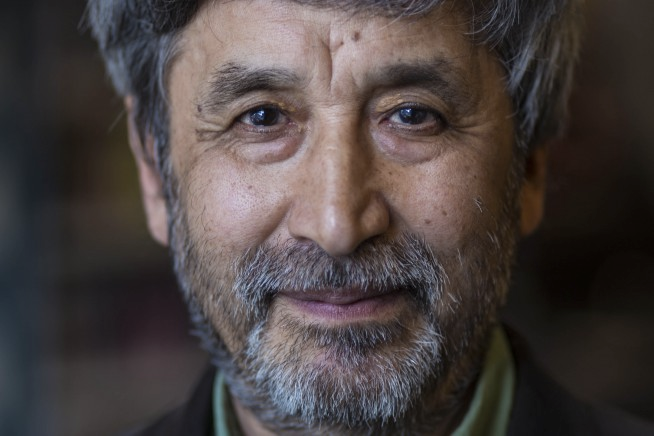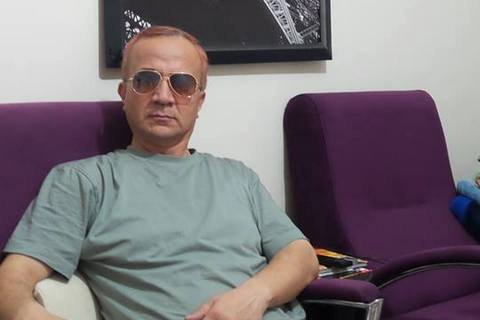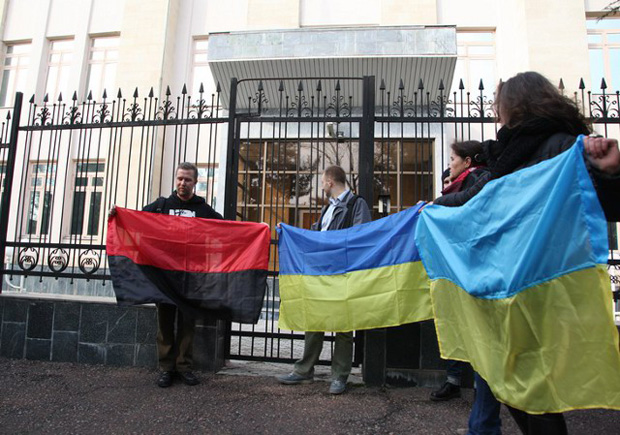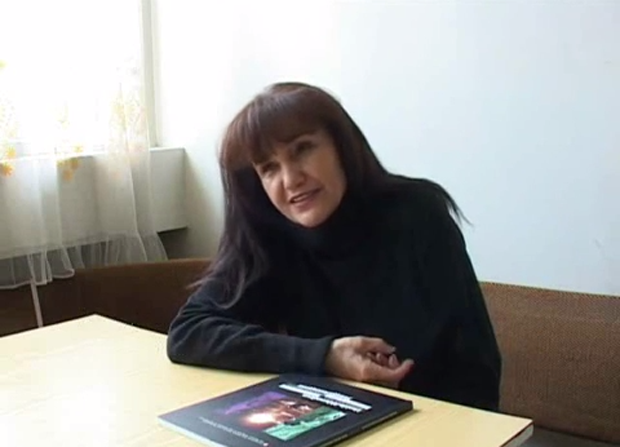Periodismo en el exilio: Uzbekistán mantiene su bloqueo contra Hamid Ismailov
[vc_row][vc_column][vc_single_image image=”103170″ img_size=”full” add_caption=”yes”][vc_custom_heading text=”El uzbeco Hamid Ismailov, periodista y escritor, se vio obligado a huir de Uzbekistán en 1992, debido a lo que el Estado definió como “tendencias democráticas inaceptables“”][/vc_column][/vc_row][vc_row][vc_column][vc_column_text]
Hamid Ismailov merece una disculpa. O, como mínimo, una explicación.
Han pasado 26 años desde los sucesos que llevaron al periodista uzbeco Hamid Ismailov a abandonar su país natal y huir a Reino Unido. En los 90, Ismailov estuvo trabajando con un equipo de televisión de la BBC en el rodaje de una película sobre Uzbekistán. El régimen represivo de Islam Karimov abrió una causa penal contra él. Las autoridades afirmaban que estaba intentando derrocar al Gobierno.
Los amigos de Ismailov le recomendaron que huyera de Uzbekistán tras recibir amenazas contra su familia y sufrir ataques contra su casa. Así que lo hizo. Veinticuatro años después, sigue sin volver.
Y no es porque no lo haya intentado. Así lo hizo este mismo año pasado, tras la muerte de Karimov en 2016. Se le denegó la entrada.
Los libros de Ismailov, uno de los autores uzbecos más publicados del mundo, están prohibidos en su propio país. No se tolera mencionar su nombre. Su existencia, básicamente, ha sido eliminada del día a día cultural de su tierra natal. Sin embargo, en la era de internet, Ismailov ha encontrado formas de llegar al público uzbeco a través de redes sociales como Facebook. Sube sus novelas a esta plataforma, donde la gente de Uzbekistán puede leerlas.
Según el índice de libertad de prensa de Reporteros sin Fronteras, Uzbekistán ocupa el puesto 169 de 180 países. Con los medios tradicionales bajo estricto control, el Gobierno ha pasado ahora a tomar brutales medidas contra las webs de noticias independientes y aplicaciones de mensajería instantánea.
Tras la muerte de Karimov en 2016, el Primer Ministro Shavkat Mirziyoyev asumió el poder. El 2 de marzo de 2018, Uzbekistán liberó a Yusuf Ruzimuradov, encarcelado durante más de 19 años, cosa que lo convirtió en el periodista que más tiempo ha pasado en la cárcel del mundo. Ismailov expresó su alegría tras enterarse de la puesta en libertad de Ruzimuradov, pero sigue sin confiarse: «por muy esperanzado que esté, también soy escéptico».
Ismailov ha trabajado para el Servicio Mundial de la BBC durante su exilio en Reino Unido. En mayo de 2010 lo nombraron escritor residente, un puesto que ocupó hasta finales de 2014. Actualmente es editor de los servicios de Asia Central de la BBC.
Hamid Ismailov habló con Sydney Kalich, de Index on Censorship, sobre la situación de los derechos humanos en Uzbekistán, su tiempo en el exilio y su libro recién traducido, The Devil’s Dance («La danza del Diablo»). A continuación se incluye una versión editada de su entrevista:
Index: ¿Cuál era la situación de los derechos humanos en Uzbekistán antes de que te marcharas, y cómo ha cambiado a lo largo de los últimos 23 años?
Ismailov: Por desgracia, ha ido empeorando con los años debido al régimen autocrático del presidente Karimov, que estaba en el poder entonces y murió en 2016. Así que durante todo este tiempo, la situación de los derechos humanos ha sido bastante funesta en Uzbekistán. El país siempre ha estado en la parte más baja de las listas mundiales de derechos humanos. Así que, hoy en día, con el nuevo presidente, el comportamiento de Shavkat Mirziyoyev nos da esperanzas de que el estado de los derechos humanos esté yendo a mejor, pues han liberado a varios prisioneros políticos. La prensa y otras actividades empiezan a revitalizarse y a estar menos encubiertas. Existe un rayo de esperanza de que las cosas mejorarán. Pero, al mismo tiempo—cuando miro a otros países con nuevos líderes que al principio fingían ser reformistas, pero luego volvieron a las políticas de gobernantes anteriores—, también tengo mis reservas. Por muy esperanzado que esté, también soy escéptico.
Index: Intentaste volver a Uzbekistán el año pasado y no te dejaron entrar. ¿Crees que volverás a ver tu país?
Ismailov: Sí, tuve muy mala suerte, porque incluso bajo las anteriores autoridades intenté entrar en Uzbekistán dos veces tras los acontecimientos de Andijan de 2005, pero la nueva administración no me permitió ingresar en el país. Me dejó bastante perplejo. Creo que me deben una disculpa por no permitirme entrar en mi propio país. Soy uno de los escritores más reconocidos en occidente y en todo el mundo que se dedican a promocionar la literatura uzbeca, si no el que más. Así que, ¿por qué no se me ha per
mitido la entrada al país? Necesito una explicación y al menos una disculpa antes de decidir qué voy a hacer ahora.
Index: ¿Y te has sentido así cada vez que te han denegado el ingreso? ¿Que simplemente necesitas una disculpa?
Ismailov: Creo que sí. No he cometido ningún crimen contra Uzbekistán. No he hecho nada ni le he hecho ningún daño a Uzbekistán. Lo único que hago es promover la literatura y la cultura de Uzbekistán por el mundo. Por lo tanto, estoy bastante anonadado y perplejo por que no me hayan dejado entrar en el país. Es donde viven to dos mis familiares; estaba planeando ir a la tumba de mi madre a rendirle tributo. Pero cuando ya lo tenía todo planeado, de repente, me echaron del aeropuerto.
Index: No has vivido en el país desde 1992, pero aún publicas en uzbeco. ¿Significa eso que sigues escribiendo con el público uzbeco en mente, más que para un público occidental?
Ismailov: Escribo en distintas lenguas. Escribo en uzbeco. Escribo en ruso. Escribo en inglés también. Así que son distintas lenguas para distintos públicos. Si escribo en uzbeco, probablemente sea para uzbecos; no hay mucha gente inglesa o rusa que lea en uzbeco. Las traducciones me han sido de mucha ayuda por la prohibición de mis libros en Uzbekistán. Pero en la era de internet, las prohibiciones no importan demasiado, porque sigo pudiendo publicar mi trabajo en la red. Otro tema es que a la gente le dé miedo nombrarme o hablar sobre mí porque saben cuáles son las consecuencias. No obstante, internet me hace la vida mucho más fácil.
Index: Tu nuevo libro, The Devil’s Dance (“La danza del Diablo”), está a punto de salir en inglés al mercado británico. ¿De qué trata?
Ismailov: En realidad The Devil’s Dance no es un libro nuevo. Lo terminé en 2012 y luego lo publiqué en uzbeco en Facebook. Se hizo bastante viral en aquel entonces. Parece nuevo porque lo han traducido al inglés. De hecho, escribí tres novelas después de esa y acabo de terminar otra novela en inglés. The Devil’s Dance es la historia del legendario escritor Abdulla Qodiriy, el autor uzbeco más reverenciado del siglo XX, el cual quería escribir una novela que reemplazase todo lo que había escrito hasta entonces. Sabemos sobre qué planeaba escribir, pero cuando empezó el borrador de la novela, lo arrestaron. Diez meses después, en 1938, lo mataron de un disparo en las prisiones estalinistas. Mi novela trata de los días que pasó Qodiriy en prisión, pensando en su famosa novela sin escribir. Son dos novelas en una. Me atreví a escribir una por él. Ocurre en su mente, así que no está escrita al cien por cien, pero hay borradores, hay historias, hay intenciones e ideas. Es una novela escrita pero, a la vez, sin escribir.
Index: ¿Cómo te influyó como periodista tu puesto de escritor residente en la BBC?
Ismailov: Fue divertido, pero al mismo tiempo sentía una gran responsabilidad, porque estaba representando a grandes escritores como George Orwell, V. S. Naipaul y demás. Me sentía como una encarnación de esas personas. Estaba intentando demostrar el significado de la residencia, el valor de la creatividad para esta organización.
Index: ¿Cuál crees que ha sido la parte más difícil de ser un periodista en el exilio?
Ismailov: La parte más difícil es no estar con tu gente todos los días. Aunque estás con ellos virtualmente a diario, no los ves cara a cara. Eso es lo peor. Aunque estar en el exilio tiene sus ventajas. Cuando empiezas a contemplar tu parte del mundo o tu país a vista de pájaro, en cierto modo, puedes ver la perspectiva de tu propio país en el mundo. Puedes comparar las experiencias de tu país con otras regiones y puedes traer las experiencias, o unas similares, de otros países a tu propio mundo. Así que tiene sus pros y sus contras.
Index: ¿De qué forma crees que ha cambiado tu forma de hacer periodismo desde que vives en el exilio?
Ismailov: Creo que el periodismo en la antigua Unión Soviética era muy conceptual. Iba todo sobre conceptos y grandes esquemas, en lugar de historias humanas. El periodismo de la BBC trata más sobre el elemento humano; aborda la realidad a través de historias y experiencias humanas. Así que para mí esa fue la diferencia y experiencia más chocante. Como escritor, siempre trato mis historias a través de las experiencias de mis personajes, así que eso se asemejaba más al periodismo occidental. Por lo tanto, trabajar como periodista aquí va muy en armonía conmigo. Como escritor, enfocas a través de los personajes, y como periodista aquí haces lo mismo.
Index: Mencionaste una vez que algunas personas se sienten más conectadas a la cultura de su país y más orgullosas de ella cuando se marchan. ¿Te sientes así con respecto a Uzbekistán?
Ismailov: Así es. Sí, me siento responsable de mi cultura, porque cuando pienso en mis antepasados, en mis abuelas y mis tías, en todas las personas cuya contribución a mi cultura fue tan vasta… tengo que devolverle algo a esta cultura, que me hizo lo que hoy soy. Pero, al mismo tiempo, me siento parte de diferentes culturas, de la cultura rusa, o de la inglesa también, ahora que he estado viviendo en Londres durante los últimos 24 años. Nunca he vivido tanto tiempo en ningún sitio. Así que, por lo tanto, le rindo tributo a este país y estoy en deuda con él. Estoy escribiendo varias novelas en inglés para pagar mi deuda con este país y esta cultura. Puede que Uzbekistán deba hasta darle las gracias a Ismailov.
[/vc_column_text][/vc_column][/vc_row]




